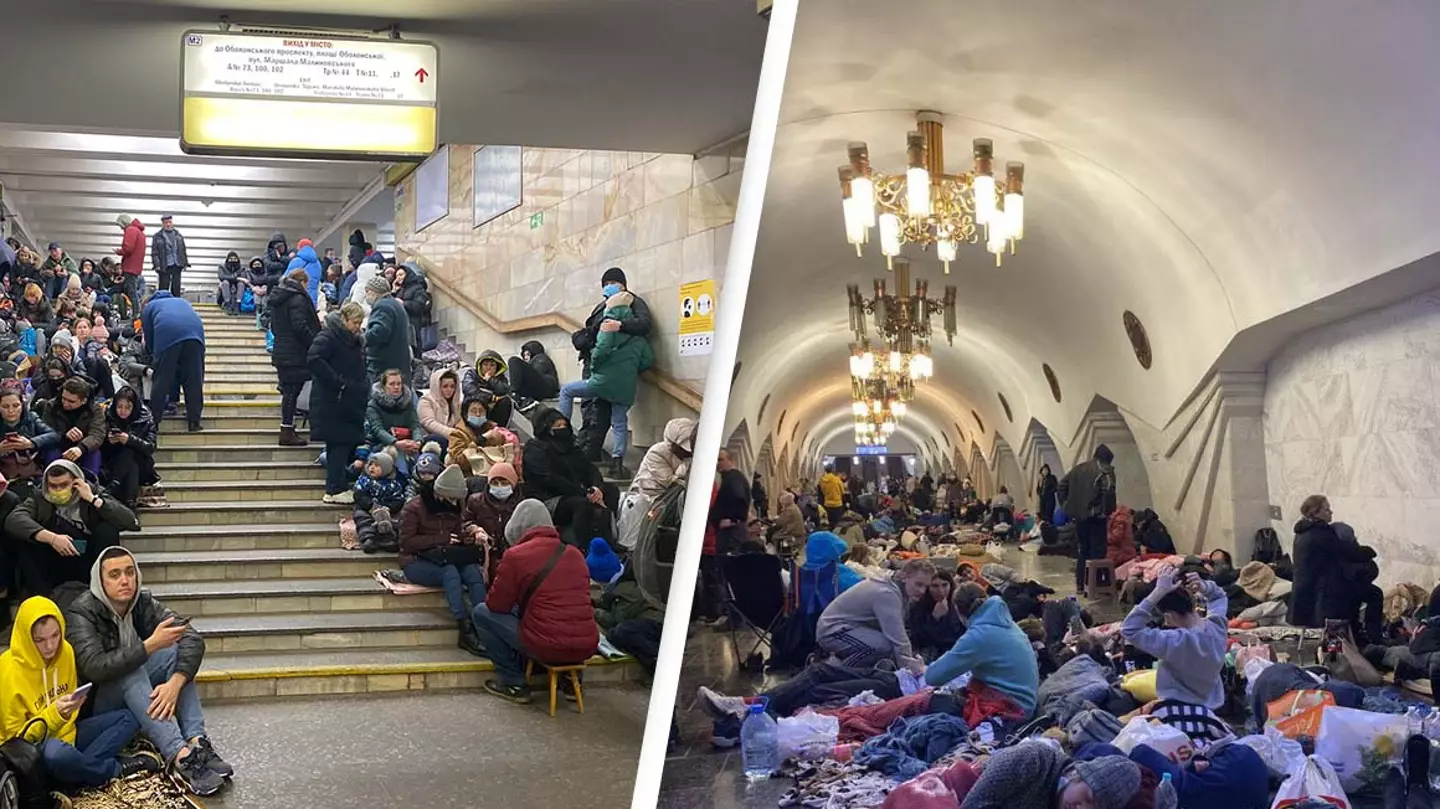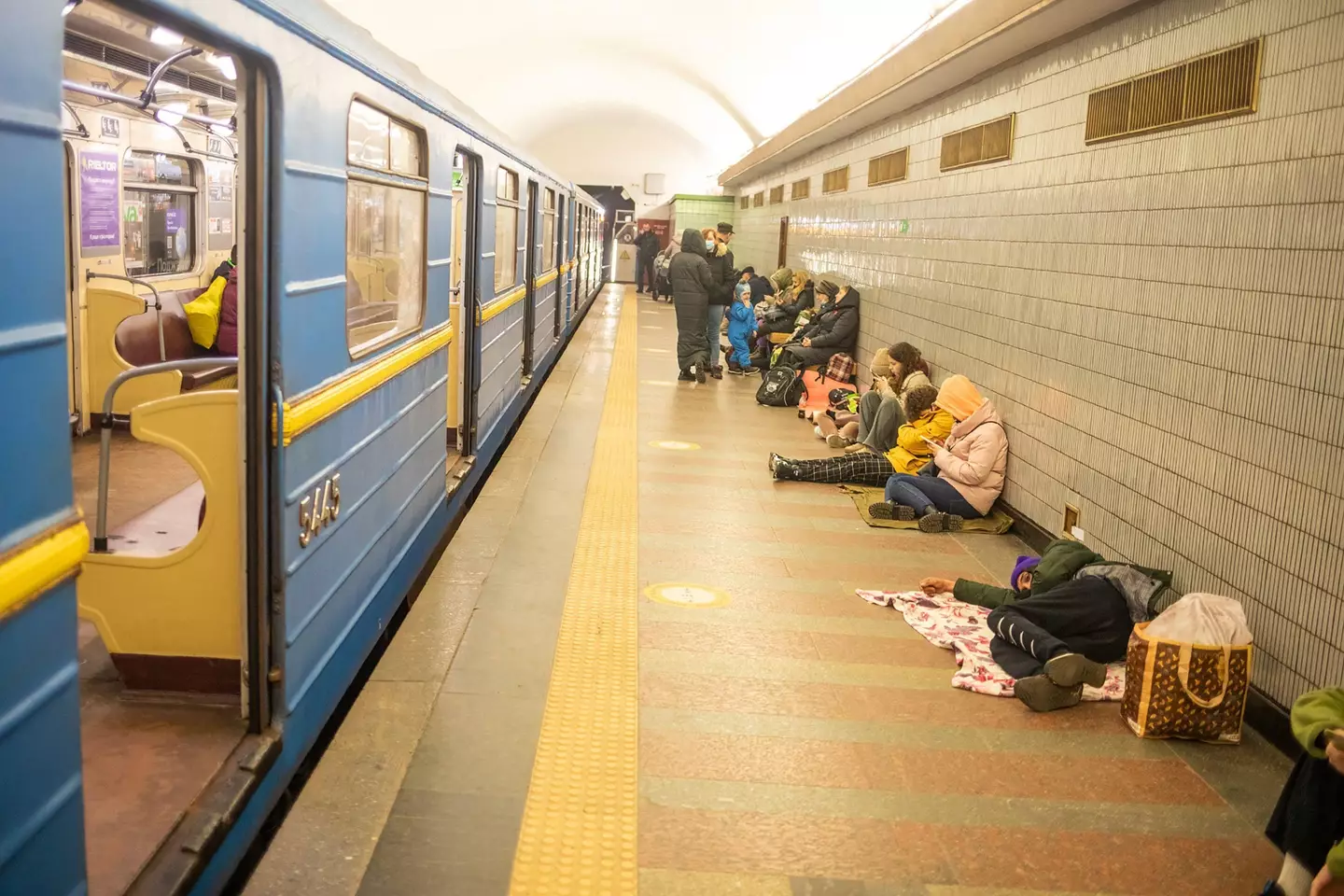
Ukrainians are being forced to shelter from Russian air strikes in underground metro stations, sparking comparisons with the Blitz.
The country's capital, Kyiv, and second-largest city, Kharkiv, have both been targeted by bombing and missile strikes overnight, with residents told to take cover from the attacks.
While some have gone to bomb shelters, others have travelled to nearby Metro stations, where they've remained throughout the night and into this morning, February 25.

Advert
Air raid sirens have been sounding on a regular basis, while at least one apartment block in Kyiv has been destroyed by what is reported to have been a Russian jet that was shot down by Ukrainian forces.
The images of families and pets with their sleeping bags and belongings in the metro stations have evoked comparisons with life in London during World War Two.
Amid nightly bombing raids by Nazi Germany, thousands of residents in the UK capital were similarly forced to sleep in Underground stations, with images taken at the time appearing remarkably similar to the images emerging from Ukraine in recent days.
At least 40,000 civilians were killed in the UK during the eight-month bombing campaign between 1940-1941.
Advert
Speaking to BBC Radio 4, one Ukrainian resident who spent the night in a metro station in Kyiv said she was 'trying not to worry about [her] life', adding, 'It's not a normal situation. It's my country, it's my land and it's my city and now all of us, all Ukrainians are under attack.'
In a statement issued earlier this morning, Ukrainian President Volodymyr Zelensky said that Russian air attacks had impacted civilian areas. 'They say that they are not targeting civilians. It's a lie. They don't differentiate,' he said.
In a statement released this morning, the United Nations said that at least 25 civilians are believed to have died in air strikes.
Advert
A curfew is currently in place across Ukraine after Zelensky declared martial law in the country, with residents ordered to be off the streets by 10pm.
Russian troops are understood to have reached the outskirts of Kyiv, with military vehicles have been seen in the northern Obolon district, around nine kilometres from the the city centre.
Civilians in the capital who are willing to take up arms have been urged to fight, with a general mobilisation of males aged between 18-60 announced following Russia's invasion yesterday, February 24.
If you have a story you want to tell, send it to UNILAD via [email protected]
Topics: Russia, Ukraine, World News
